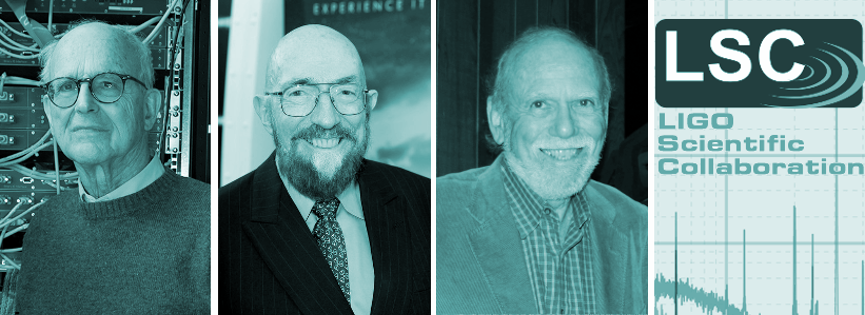The Princess of Asturias Foundation
Sección de idiomas
Fin de la sección de idiomas
Sección de utilidades
Fin de la sección de utilidades
- The Foundation
- HM The King
- HRH The Princess of Asturias
- 2023 Special
- Princess of Asturias Awards
- Area of Communication and Media
- Music Department
- Exemplary Town of Asturias Award
- 2012 Special
- 2013 Special
- 2014 Special
- 2015 Special
- 2016 Special
- 2017 Special
- 2018 Special
- 2019 Special
- 2020 Special
- 2021 Special
- 2022 Special
-
Important: COVID-19
-
Terms of Use
You are in:
Laureates
Start of main content
Rainer Weiss, Kip S. Thorne, Barry C. Barish and LIGO Scientific Collaboration
Princess of Asturias Award for Technical & Scientific Research 2017

Princess of Asturias Award for Technical and Scientific Research
At its meeting in Oviedo, the Jury for the 2017 Princess of Asturias Award for Technical and Scientific Research, made up of Juan Luis Arsuaga Ferreras, Juan Ignacio Cirac Sasturáin, Miguel Delibes de Castro, Luis Fernández-Vega Sanz, Cristina Garmendia Mendizábal, Álvaro Giménez Cañete, Bernardo Hernández González, Clara Menéndez Santos, Sir Salvador Moncada, Ginés Morata Pérez, Enrique Moreno González, Teresa Rodrigo Anoro, Inés Rodríguez Hidalgo, Manuel Toharia Cortés, chaired by Pedro Miguel Echenique Landiríbar and with Santiago Carcía Granda as acting secretary, has unanimously decided to confer the 2017 Princess of Asturias Award for Technical and Scientific and Research jointly on physicists Rainer Weiss, Kip S. Thorne, Barry C. Barish and LIGO Scientific Collaboration for the direct detection of gravitational waves, ripples in space-time anticipated by Albert Einstein in his Theory of General Relativity a century ago now. This achievement provides answers to one of the most important challenges of physics in its entire history. The Award recognizes the individual talent and collective work of more than a thousand researchers belonging to a hundred institutions in eighteen different countries. The LIGO project supposes a technological challenge of prime importance. The extraordinary precision achieved by its instruments has allowed the observation of the merger of very massive black holes that occurred more than a thousand million years ago. The detection of gravitational waves opens up a new window for the study of the Universe that will allow the discovery of new phenomena and the study of regions of space-time that have as yet been non-accessible using current techniques.
Oviedo, 14th June 2017
End of main content
Sección de utilidades
Fin de la sección de utilidades
- Legal document Legal document (Access key 8)
- | Privacy policy Privacy policy (Access key )
- | Social networks ???en.portal.pie.menu107.title???
- | Cookies ???en.portal.pie.menu110.title???
- | Site map Site Map (Access key 3)
- | Contact Contact (Access key )
- | XHTML 1.0
- | CSS 2.1
- | WAI 'AA
© Copyright 2024. FUNDACIÓN PRINCESA DE ASTURIAS
 MINUTES OF THE JURY
MINUTES OF THE JURY


